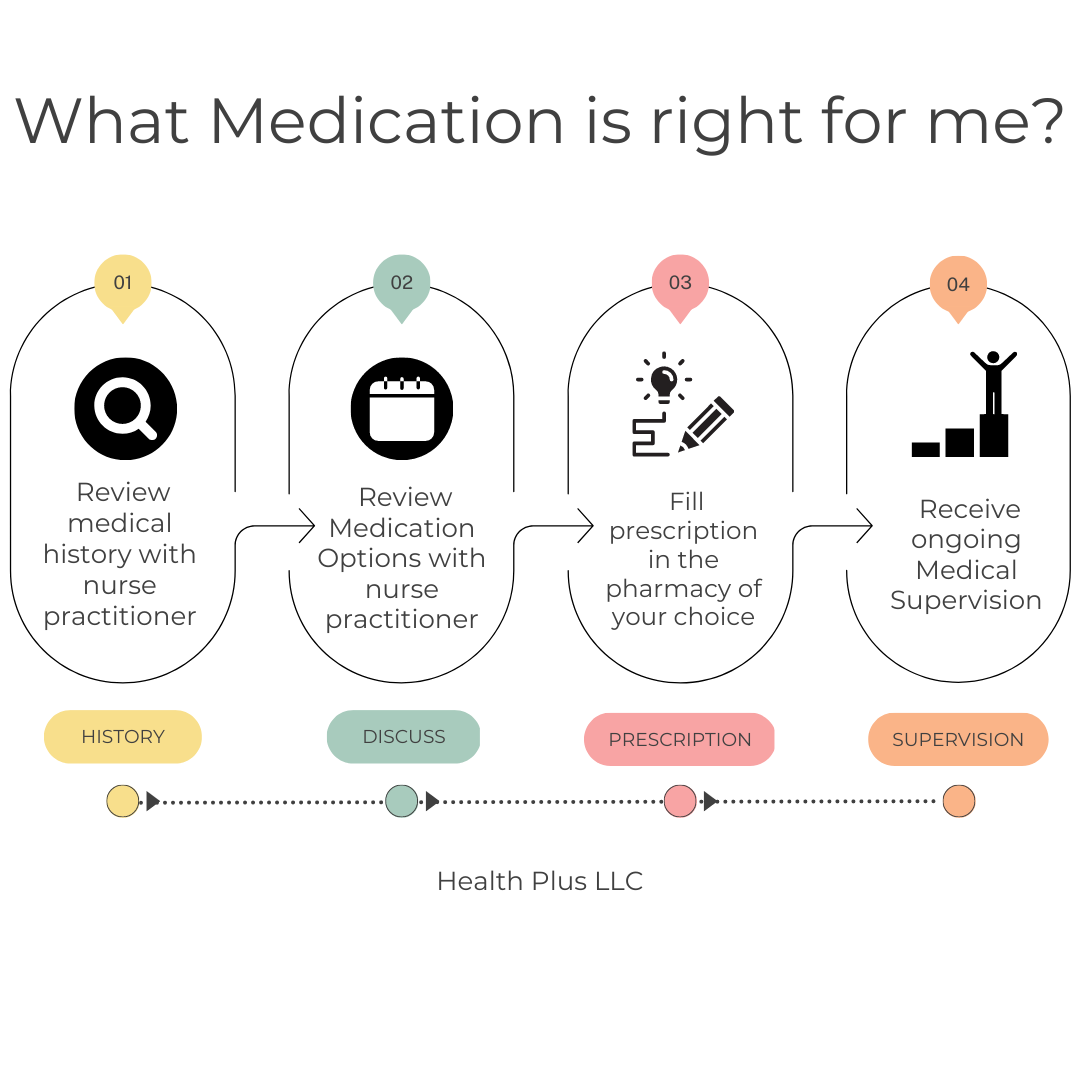Weight Loss Medication
Overview of Medications
Sympathomimetic medications, including phentermine, phendimetrazine and diethylpropion, have been prescribed for weight loss since the 1950’s. These medications suppress appetite, decrease cravings and diminish preoccupation with food. They are safe and effective when taken as prescribed. Sympathomimetics work by causing an increase in the neurotransmitters norepinephrine, dopamine, and serotonin. These neurotransmitters stimulate the satiety center, located in the hypothalamic and limbic areas of the brain, thus suppressing appetite. Sympathomimetics are stimulants and have similar side effects, including insomnia, dry mouth and increased heart rate.
Phentermine (Adipex & Lomaira)
- Health Plus Phentermine Information Page
- Health Plus Phentermine Handout
- https://www.adipex.com/
- Lomaira Patient Brochure
- https://www.drugs.com/cons/lomaira.html
Phentermine and topiramate combination (Qsymia)
Topiramate is a non-stimulant appetite suppressant. It is typically prescribed in combination with phentermine. Qsymia combines phentermine and topiramate in a single time release capsule. Qsymia was approve by the FDA in 2012 for weight loss following a study that showed that at the highest dose patients lost an average of 32 pounds after 56 weeks.
Phendimetrazine (Bontril)
Diethylpropion (Tenuate)
Glucagon-like peptide (GLP-1) receptor agonists are a class of injectable medications that are used in the treatment of Type 2 diabetes and obesity. GLP-1 agonists are the most effective weight loss medications currently available. GLP-1’s causes the pancreas to produce insulin after meals, thus helping to lower blood sugar. They also bind to receptors in the brain to suppress appetite. GLP-1’s also help promote weight loss by slowing gastric emptying after meals. This means that food stays in your stomach longer, causing you to feel full. Finally, there is evidence that GLP-1’s help with weight loss by acting on the body’s “set point,”, making it easier to maintain a lower weight.
Saxenda (liraglutide) was approved by the FDA in 2014 for the treatment of obesity. It is administered daily. It is approved for use in adults and adolescents over the age of 12. During a 68 week clinical trial, the mean weight loss for patients taking liraglutide was 6.4%.
Wegovy (semaglutide) was approved by the FDA in 2021 for the treatment of obesity. It is administered weekly. During a 68 week clinical trial, the mean weight loss for patients taking semaglutide was 15.8%. Ozempic is another brand of semaglutide approved for the treatment of Type-2 diabetes.
Mounjaro (Tizepatide) is a “dual agonist” or a “dual GIP and GLP-1 receptor agonist.” It was approved by the FDA in 2021 for the treatment of Type-2 diabetes. FDA approval for weight loss is pending. During a 72 week clinical trial, the mean weight loss for patients taking a weekly 15mg dose of tizepatide was 20.9%.




